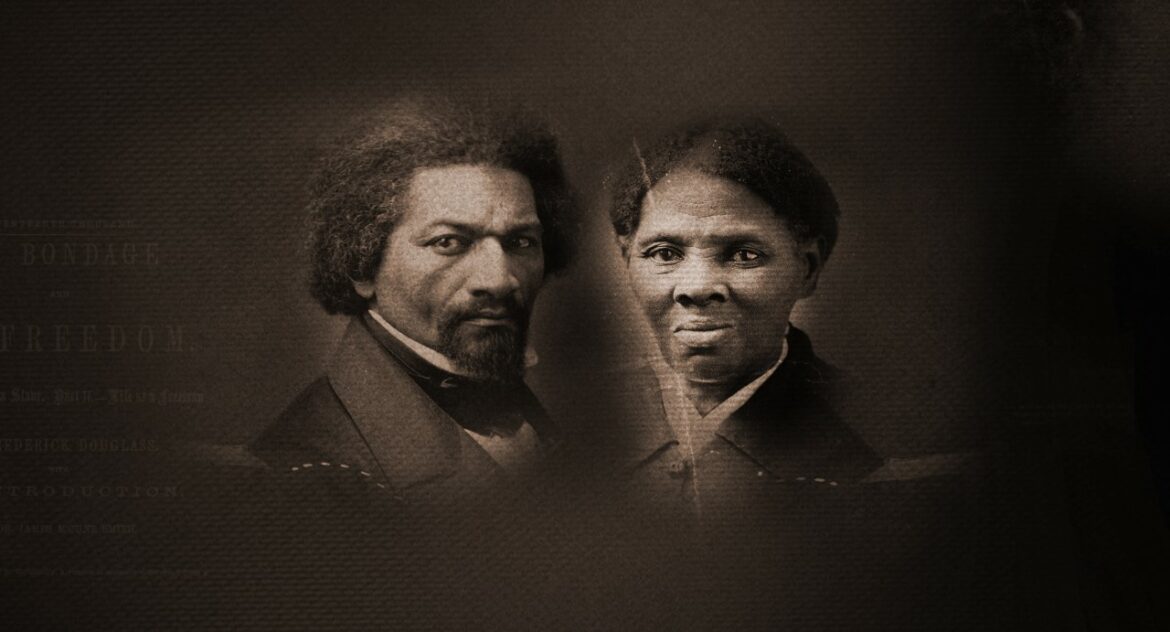MPT grants boost local engagement campaigns around Douglass, Tubman documentaries

New York Historical Society/Bridgeman Images and RTRO/Alamy
Nineteen TV stations are using grants from Maryland Public Television to launch engagement and education campaigns surrounding documentaries about Harriet Tubman and Frederick Douglass that aired this month on PBS.
Harriet Tubman: Visions of Freedom and Becoming Frederick Douglass were broadcast Oct. 4 and Tuesday, respectively. Co-produced by MPT and Firelight Films, the documentaries reveal information viewers may not know about the historic figures and offer a new look at their lives and legacies, said MPT CCO Travis Mitchell.
The two documentaries were funded through an appropriation from the state of Maryland, as well as support from Bowie State University, DirecTV and Pfizer. That support also allowed MPT to award grants from $5,000 to $10,000 to stations across the country for educational campaigns and additional programming. The grants extend until March, giving the stations time to execute in-depth campaigns.
“Any time that we can really expand and use the films to educate diverse populations and diverse communities, we feel like we are accomplishing the goal for which public media was chartered,” Mitchell said.
MPT is also providing additional educational resources for middle and high schools. Resources such as learning interactives and self-paced lessons will help students develop historical empathy and critical thinking skills by exploring the histories of Tubman and Douglass.
Mitchell said that he’s looking forward to an engagement campaign from KTWU in Topeka, Kan., which will screen the films in early 2023 at the Ritchie House, a stopping point in Topeka on the Underground Railroad. KTWU will also organize a discussion about the films.
“It’s not just us talking to people and providing a history lesson,” said KTWU GM Valerie M.B. VanDerSluis. “It’s actually taking them to the house where they can get tours and really fully engage themselves in what those travelers had to experience as they traveled north.”
In Indianapolis, WFYI is using a grant to create a digital segment for its Across Indiana TV series. The segment will highlight a neighborhood on the south side of Indianapolis where families live on the same property their ancestors settled after the Civil War.
WFYI also hosted a September event at a naturalization ceremony in Indianapolis to involve participants with the work of Tubman and Douglass. Over 250 new citizens were invited to respond to quotes from the historical figures by adding responses to a poster. Some wrote about the pride they felt in becoming new citizens, according to Gail Thomas, WFYI’s VP of community engagement. Representatives from the League of Women Voters were also on site to register the new citizens to vote.
“It was really an experience of democracy that was to be celebrated,” Thomas said.
Other stations are using the grants to test new ways to reach audiences. In a series of three TikTok videos relating to the documentaries, Louisiana Public Broadcasting hopes to explore future use of the platform while providing teachers with educational resources, according to Colleen Spillane, public information officer.
The TikToks will include an overview of LPB’s engagement campaign and a deeper dive into material drawn from MPT’s educational resources. LPB also aims to introduce younger audiences to its work through the videos.
Additionally, LPB is using the grant to create four short films about Black figures in Louisiana history, to air in February. “We can widen the scope of understanding and awareness on some key figures, or some key happenings in our own backyard,” Spillane said.
Some station campaigns are targeting local students. WCNY in Syracuse, N.Y., and WCTE in Cookeville, Tenn., are staging student artwork exhibits and contests inspired by the documentaries.
In addition to the grants, MPT is working to bring the films to over 80 college campuses across the country. Thirty-seven screenings have been hosted since the start of MPT’s HBCU Week Sept. 5, which promoted historically Black colleges and universities. By the end of the campaign, the documentaries will have reached 41 HBCU campuses nationwide.
“We can begin to take a look through historical lenses at what we are facing today as a nation to hopefully inform our current strategies, efforts and activities that are always designed for America to be stronger, more inclusive and more diverse,” Mitchell said.
Correction: An earlier version of this article incorrectly said that Louisiana Public Broadcasting’s TikToks will draw on a lesson plan developed by a Louisiana teacher. The videos will be based on educational materials provided by MPT.





